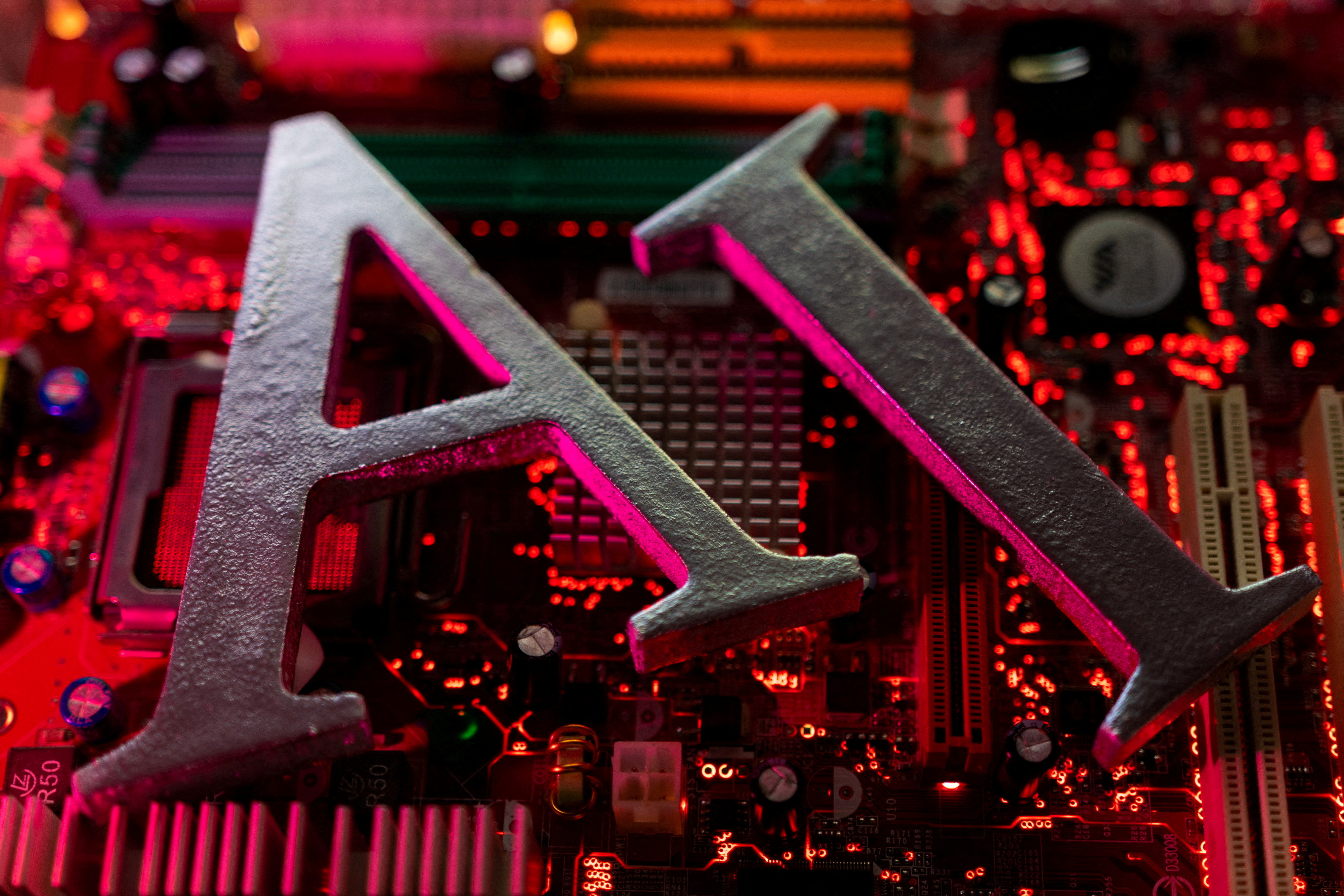AI (Artificial Intelligence) letters are placed on computer motherboard in this illustration taken, June 23, 2023. REUTERS/Dado Ruvic/Illustration/File Photo Acquire Licensing Rights
Oct 2 (Reuters) – Inflows into exchange-traded funds (ETFs) tracking artificial intelligence (AI) companies have ebbed after their sharp run-up earlier this year, as investors fear persistently high U.S. interest rates will hurt company valuations.
The Global X Robotics & Artificial Intelligence ETF (BOTZ.O) received $1.8 million in net inflows in September after sharp outflows in the prior month, while the smaller ROBO Global Robotics & Automation Index ETF saw outflows of $14.3 million.
By contrast, both funds received their highest monthly net inflows of 2023 in June, gaining $265.5 million and $29.74 million, respectively, according to Lipper data.
On the whole, AI and robotics focused ETFs had a strong start to 2023 after the release of Chat GPT-4, taking in over $1.9 billion through the first three quarters of the year, said Aniket Ullal, ETF data and analytics head at CFRA Research.
But AI stocks have suffered along with broader markets in recent weeks, as Treasury yields hovering around 16-year highs dull investors’ risk appetite.
“The inflows moderated in September due to the market’s view that interest rates may now be higher for longer, which would impact tech firms with cash flows further out in the future,” said Ullal.
Retail investor flows into the sector have also cooled as the initial fervor surrounding AI wanes. September saw the lowest net monthly retail flows of $1.96 billion into AI-linked stocks since April, according to Vanda Research.
The high-flying stocks were also experiencing some profit taking after their sharp rally this year, investors said.
Performance-wise, the Global X fund is still up 21% this year, supported by a sharp surge in megacap chipmaker Nvidia (NVDA.O), whose price has jumped over 200% year-to-date.
Investors remained optimistic about the long-term prospects of the sector.
The recent weakness provided a good opportunity to add exposure to AI leaders, Mark Haefele, chief investment officer at UBS Global Wealth Management, said in a note.
“It is possible this negative sentiment could reverse again in Q4, particularly if large cap tech stocks like Nvidia held in AI-themed tech ETFs continue to show strong earnings growth,” CFRA’s Ullal added.
Reporting by Bansari Mayur Kamdar in Bengaluru; Editing by Ira Iosebashvili and Mark Potter
Our Standards: The Thomson Reuters Trust Principles.











